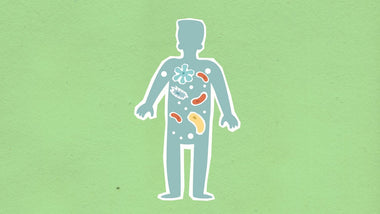Why you should care about homocysteine

Homocysteine is an amino acid and intermediary compound in the normal biosynthesis of methionine and cysteine, both of which are also amino acids. Methionine and cysteine play a crucial role in protein structure, metabolism, immunity, and oxidation. The oxidation part is especially important as compounds derived from methionine and cysteine alleviate oxidative stress and protect various tissues from damage.
Elevated homocysteine levels signal a problem with conversion to methionine and cysteine. This can be seen with deficiency of B vitamins, especially folate, B6 and B12, as well as genetic factors affecting various steps in the conversion pathways.
Homocysteine levels are measured with a blood test and normal ranges fall between 5.0 and 15.0 μmol/L. When the level is between 16-30 μmol/L it is classified as moderately elevated, 31-100 μmol/L is considered intermediate and a value above 100 μmol/L is classified as severe hyperhomocysteinemia. Elevated homocysteine levels - resulting in reduced protection against oxidative damage - have been linked to increased risk of vascular disease. You can think of high homocysteine as making the lining of your arteries more vulnerable and sticky, so that LDL cholesterol is more likely to latch onto blood vessel walls – accelerating plaque deposits.
As it turns out, homocysteine is also a precursor to chemicals that are critical to brain health. And elevated homocysteine levels have been shown rather consistently to increase risk of dementia. It’s another example of the connection between heart and brain health.
The connection between elevated homocysteine and brain health is so compelling that an International Consensus Statement considers reducing homocysteine levels through vitamin B level optimization a viable pathway to reducing the incidence of conditions like Alzheimer’s Disease. The Statement's authors recommend patients with early signs of memory impairment be screened for elevated homocysteine levels and have any vitamin B deficiencies addressed with supplements.
But guess what else can keep homocysteine at healthy levels? A whole-food plant-based diet. That’s because plants are great sources of folate and B6. And research has shown that eating more foods that supply these nutrients works as well as taking supplements for lowering high homocysteine levels. Specifically, look for leafy green vegetables, asparagus, lentils and beans to up your folate intake. Seek out potatoes, bananas and garbanzo beans for vitamin B6.
For B12, you’ll need to look at animal sources, so steer toward healthier options such as salmon, eggs, tuna and trout. You’ll also find B12 in nutritional/fortified yeast (try it on popcorn!).
Eat food. Not too much. Mostly plants. Sage advice that never seems to steer us wrong.
But even with the best diets, deficiencies can occur. For example, our ability to absorb vitamin B12 diminishes as we get older. Chronic use of anti-reflux medications can also affect B12 absorption. So, if you’ve never had your homocysteine level checked, ask your doctor to see if this test might be appropriate for you - especially if you’re over 60, have gastroesophageal reflux and have regularly used medications to manage this, and/or your memory is not as sharp as it used to be. An elevated homocysteine level should prompt a search for B vitamin deficiencies.

Tested & Proven Results.
- Cardiologist formulated
- Supported by over 500 publications
- Clinically-proven, in a double-blind randomized trial with Mayo Clinic and The University of Manitoba
80% of participants lowered their cholesterol in just 30 days. With just two servings per day, Step One Foods offers a proven-effective way to naturally lower LDL (bad) cholesterol.
Get heart health tips and articles like this, delivered right to your email.
New articles every week.
You may also like...

Why Two People Can Eat the Same Calories—and Only One Gains Weight

The Heart of the Matter: The Engine That Makes Whole-Body Health Possible

You don’t need to avoid foods with cholesterol…except for these


